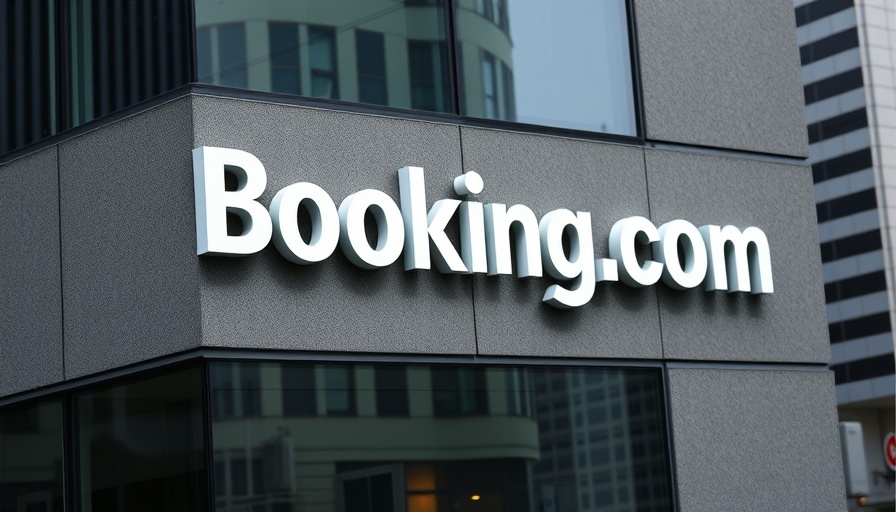
The Rising Tide of Legal Action Against Online Travel Agencies
In a pivotal move, more than 25 national hotel associations across Europe coordinated a collective legal action against the online travel agency (OTA) Booking.com, sparking discussions about the future of pricing structures in the hospitality industry. This legal challenge, lodged in the Netherlands, takes aim at Booking.com’s long-controversial price parity clauses. These clauses compel hotels to maintain identical or lower rates on Booking.com than what they list on their own websites or other platforms, limiting price competition and transparency.
Understanding Price Parity Clauses: Implications for Hoteliers
Price parity clauses have been central to debates within the European hospitality market, raising critical questions about fair competition. The crux of the matter lies in a recent ruling by the European Court of Justice (ECJ) asserting that these clauses could hinder competition rather than enhance it. Following a similar case involving German hotels in September 2024, industry stakeholders began reassessing the legal foundations of such pricing strategies.
As affluent travelers seeking luxury and exclusive experiences, it is crucial to understand how this legal development may reshape the landscape of high-end accommodations, from boutique luxury hotels and exclusive resorts to 5-star establishments. The court’s decision signals a shift that could lead to more competitive pricing prevalent across various platforms, ultimately benefiting consumers.
What’s at Stake? The Broader Impact on the Hospitality Sector
This lawsuit marks a major turning point in hotel-OTA relationships. With booking platforms playing an increasingly pivotal role in influencing consumer choices, the ramifications extend beyond individual hotels. The outcome could redefine how luxury hotels, romantic accommodations, and premium resorts engage with OTAs, leading to sustainable practices and ensuring fairness in pricing models.
Furthermore, the legal action raises pertinent questions about whether other OTAs might follow suit, adhering to similar pricing strategies that limit competition. The hospitality sector increasingly hinges on digital platforms for visibility and bookings, making the implications of these clauses pertinent for all stakeholders involved.
A Call to Action for Luxury Accommodations: Join the Movement
For hoteliers who have worked with Booking.com between 2004 and 2024, the opportunity to join this actionable claim is on the table until July 31, 2025. This collective action could forge a new path towards equitable interactions with booking platforms and inspire resilience through industry solidarity. Hotels that wish to assert their rights and advocate for fairer working conditions must take proactive steps to engage.
The backing of prominent associations like HOTREC is a positive indication of increased industry support. This collective effort showcases the power of unity, encouraging hotel operators to harness their voices in advocating for better practices and ensuring consumers have access to competitive rates.
Invitation for Transformation: The Future of Booking Platforms
The litigation's potential to transform OTA practices suggests a renaissance for luxury travel experiences. As consumer demands evolve, hoteliers and OTAs must adapt. The call for superior, authentic luxury hotel experiences such as luxury wellness retreats, private island resorts, and high-end hotels demands that the industry listens closely to the voices of its stakeholders.
The ongoing pursuit of reform signifies an opportunity for all players in the market to innovate and implement solutions that prioritize consumer interests while also sustaining the integrity of businesses.
Ultimately, the lawsuit against Booking.com symbolizes not just a fight against restrictive policies but also a movement towards creating a more transparent and hospitable industry, enhancing the journey for travelers worldwide.
Exploring the Ripple Effect: A Connecting Thread to Travelers
As travelers, understanding these dynamics enables informed choices regarding accommodations. This legal fight reflects larger trends that promise to enhance consumer experiences, ensuring that travelers glean the best value without restrictions. The pursuit of transparency and fairness in pricing plays a vital role in ensuring your luxury hotel stays and resort experiences remain enjoyable and reasonably priced.
As an affluent traveler, staying informed about these developments could enhance your travel planning. You may soon find more enticing offers from your favorite luxury hotel chains and boutique resorts, transforming how you explore the world.
For those interested in the interplay of hospitality law and consumer rights, following this legal case and its developments will provide pivotal insights into the industry's future.
Take action! If you're part of the hospitality industry, consider joining the claim against Booking.com and advocating for a fair marketplace that benefits not just the hotel owners but also you, the discerning traveler.
 Add Row
Add Row  Add
Add 




 Add Row
Add Row  Add
Add 
Write A Comment